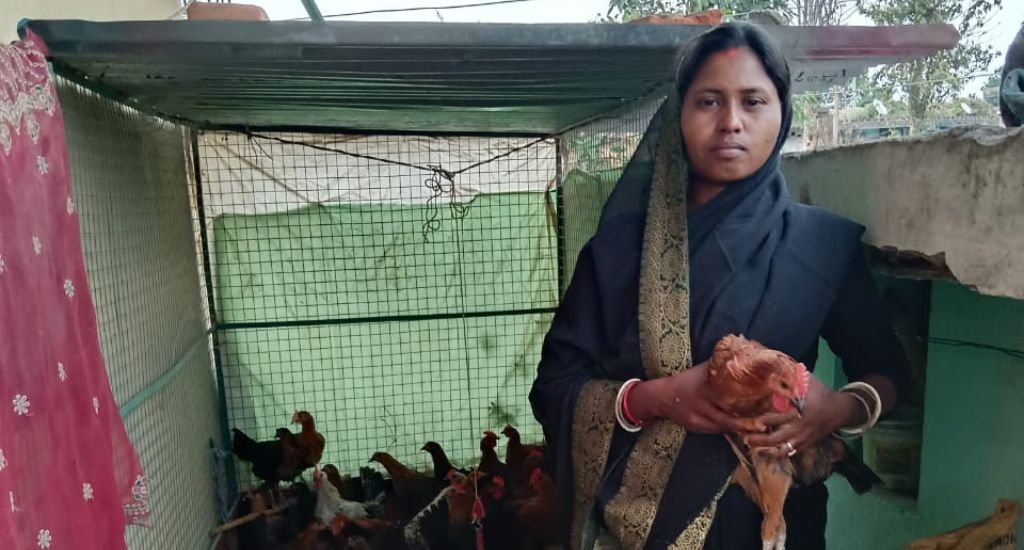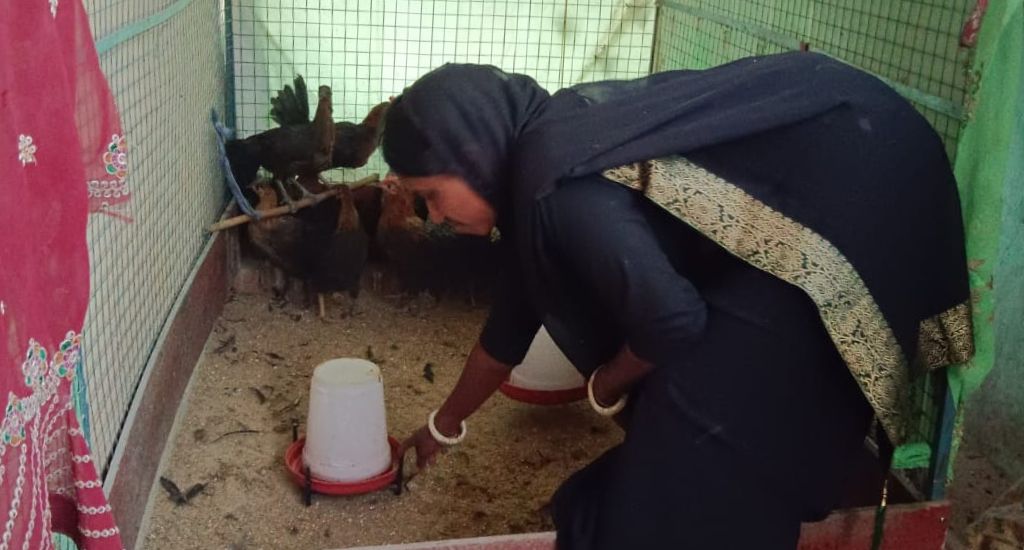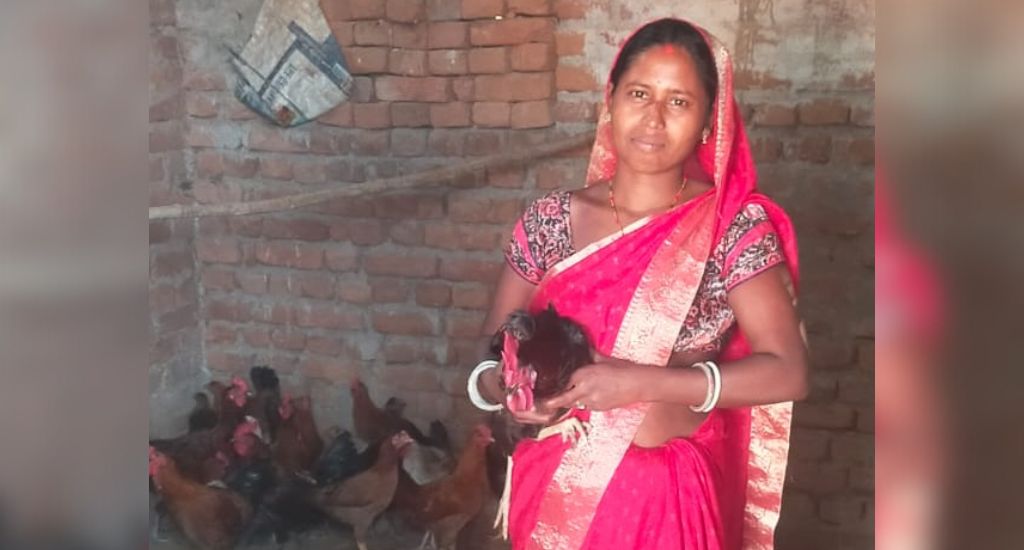
Growing chicks empowers women beyond financial gains
In rural Jharkhand, women seeking a way out of poverty get trained to start a small poultry business, and taste financial success and empowerment.

In rural Jharkhand, women seeking a way out of poverty get trained to start a small poultry business, and taste financial success and empowerment.
Sulekha Kumari, a 31-year-old resident of Khokha village in Ramgarh district, Jharkhand, is no stranger to life’s hardships. Like many families in the region, her family too depended on a small plot of land for their sustenance; but it fell short. Kumari and her husband faced constant financial struggles to fend for themselves and provide for their two children.
Determined to overcome their financial hardship, Kumari explored various avenues – till she found a ray of hope in the Jharkhand Opportunities for Harnessing Rural Growth (JOHAR) programme.
JOHAR, offered by State Rural Livelihood Mission (SRLM), is a programme that diversifies the income of rural households. Transform Rural India (TRI), a development design practice, supports SRLM in implementing JOHAR. By providing essential livelihood resources, this initiative empowers women like Kumari.
Through the JOHAR programme, TRI helps women establish a poultry business. All the necessary resources including chicks, cages and feed are provided at a nominal fee. But the most important support the women receive is getting trained in all the aspects of the poultry business.
Sulekha Kumari felt that this programme offered her the best chance to break free from the cycle of poverty and create a brighter future.
Also Read: From tribal roots to a fashion icon: Jharkhand model redefines beauty standards

Kumari, along with nine other women, pooled their resources by investing Rs 2,000 each. Then they bought 50 chicks to kickstart their poultry business.
The initial phase proved to be demanding as they navigated the challenges of chick care, feeding and maintaining a hygienic environment. Undeterred, they persevered, putting the lessons they learned during the training to practice. And they drew strength from their fellow entrepreneurs.
After two months, their dedication and perseverance paid off. Kumari successfully sold 80 percent of her chickens, earning Rs 18,000. It was a windfall, unlike anything she had earned before.
Kumari’s story is not just about financial gain; it’s about being empowered.
She had been struggling for years to build a room in her house. With the poultry business she felt confident of her potential to earn and decided to build the room. She knew that she would get an additional income of Rs 8,000 – 10,000 through the sale of the remaining chickens.

With the success of her poultry venture, she is no longer bound by the limitations of her agricultural land.
Kumari plans to add more chicks to her flock, to ensure a sustained income for her family, while inspiring the other women in her community. The mentorship and support from TRI have fuelled her ambition. She now dreams of becoming a ‘lakhpati didi’, thanks to the JOHAR programme.
Also Read: How these rural women shatter stereotypes
Sulekha Kumari’s journey is a testament to the power of self-belief and the transformative potential of small-scale interventions. Her story serves as an inspiration to countless rural women – that if they take charge and embrace opportunities, they can rewrite their destinies.
The lead image features Sulekha Kumari, who found her financial freedom through her small poultry business.
Reena Kumari is working as an Associate Practitioner at Transform Rural India Foundation in Jharkhand.